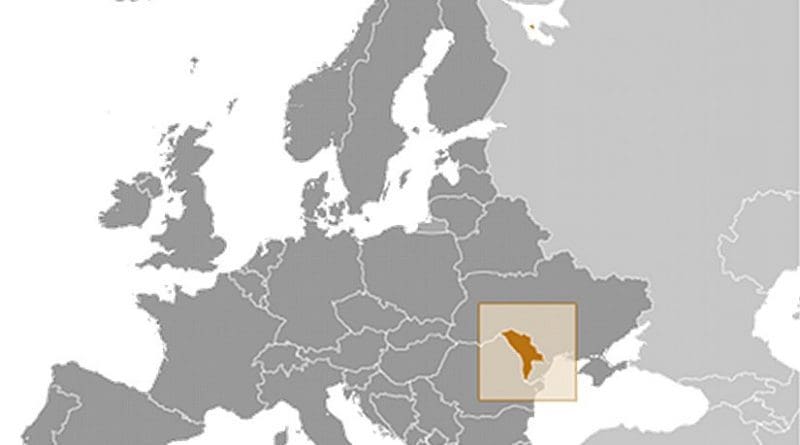Moldova Won’t Become The Next Ukraine – Analysis
By JTW
By Olga Malik*
“Early parliamentary elections!” demanded thousands of angry and disappointed Moldavian citizens in front of the Parliament’s building in Chisinau.
The reason for the massive protests is the illegal assignment of Pavel Filip to the post of Prime-Minister. The inauguration was held at night on January, 21, in secret, in the Parliament’s building.
However, despite the fast escalation of the country’s unrest and analysts’ forecasts predicting a mirror-like scenario of the Ukraine crisis in Moldova, Chisinau is unlikely to become the “next Maidan”.
As surprising as it may seem, the protests in Moldova have united both supporters of a pro-European development and pro-Russia followers. The two absolutely different groups demand an immediate cease of the political and economic crisis followed by the political regime change.
European dream
The political crisis in Moldova goes back to 2005 when the country had become a part of the Associations Agreement with the European Union. According to Iuri Vitneanschi, a city council member, “the Moldavian people were brainwashed by the pro-European propaganda while the government announced a pro-European political course for the country”. However, the reality the reality proved to be different from promising slogans. The so-called grants provided by Brussels turned out to be high-interest mortgages. For instance, the $105 billion grant for railway infrastructure development became a $95 billion government debt. The situation with export quotas also proved to be far from what it looked like in the beginning. Summer 2015 was a perfect example of it when the trees were covered with rotted fruits and wine cellars lackedstorage space. The poor bargain with Europe, on the one side, and the embargo on export imposed by Russia, in the other, left Moldova empty handed. Moreover, the government had to cut social benefits and raise taxes that incredibly lowered the country’s living standard. “The average retirement package is around 1000-1500 ley while the average bill for public services is 2000 ley. Retired people are unable to pay these bills”, added Vittneasnschi.
Internal crisis and Romanization
Cultivation of the Romanian language and Romanian culture in Moldova is not just a social phenomenon based on the common border of the two countries. It is an intended government initiative. Political corruptness and double citizenship held by most of the government officials played a crucial role in the process of Romanization. Victor Polyakov, the leader of the Socialist Party youth branch “Young troops”, explained how a judicial reform was implemented. According to Moldova’s Constitution, the country’s official language is Moldavian. However, a few years ago, a group of activists from a radical party publicly offered to make the Romanian language an official language of the country’s judiciary, basing their statement on the Declaration of Independence. As a result of this initiative, 5 out of 6 judges who had double citizenship passed a resolution on the prevailing status of the Declaration of Independence over the Constitution and, therefore, the Romanian language became an official language of the judiciary. The last drop was placing a Romanian flag next to the Moldavian flag on the President’s palace in Chisinau. Is there any better way to humiliate the nation?
Oligarch-the dodger and faceless President
Regardless of the political and economic troubles Moldavian citizens face daily, the country’s wealth is possessed by “Moldavian devil” Vladimir Plahotniuc, a businessman and probably the richest man in Moldova. Plahotniuc started his political career in 2010. By that time, most of the country’s TV channels, hotels and gas stations were owned by Plahotniuc. Given weak-willed President Timofti, Plahotniuc got access to the cabinet and de facto started to govern the country. As most of Moldavian people say, it was Plahotniuc who chose Pavel Filip to fill the Prime-Minister post , as he needed a puppet that would allow the oligarch to control the country. Nevertheless, Plahotniuc has never been supported by the United States or the European Union. Indeed, Brussels discredited its political status after the loud banking scandal in Moldavia, when almost 1/8 of the country’s GDP withdrawn to offshore accounts. Yet, Plahitniuc got off the hook once again. Vlad Filat, Plahotniuc’s best fellow and the former leader of the Liberal-DemorcaticParty of Moldova is currently in jail as he was presumably the initiator of the banking scam, while Plahotniuc is ruling the country.
Who will rescue Moldova?
Moldova, a tiny European country, seems to be soaked in eternal political and economic crisis.Nonetheless, despite the low standard of living, high unemployment rate and increasing taxes, Moldavian people were able to remain patriots. The protesters’ tent camp set on Chisinau’s central square 6 months ago grows day by day while the ranking of the Socialist Party, the biggest opposition party, is gaining more support (in 2015 the party received 19 seats out of 50 in the city’s parliament). “Moldavians are pretty peaceful people and they love their country. Even though the Ukrainian scenario is one of the outcomes of the national unrest, Moldavians would not be likely to set fires and crush government buildings”, said Vitneanschi, “because Moldavians do not want a revolution”.
*Olga Malik is an independent journalist who covers international politics&business with a particular focus on the U.S., Middle East and Russia. A former producer of RT’s CrossTalk, Olga is a frequent contributor to international media including Gulf News and Sputnik News.


Romanization of Moldova? How can this be? How can you believe that Romanians can get through a process of Romanization? What do you know about the Romanian language? Since you do not speak it you should not talk about it and let the experts decide. The Moldovan Academy decided that scientifically “Moldovan” is the same language as Romanian, thus the issue was set. And why the author does not talk about the Russification of Moldova during Soviet occupation.
If Russian colonists do not like to speak Romanian they are free to go back to Russia.